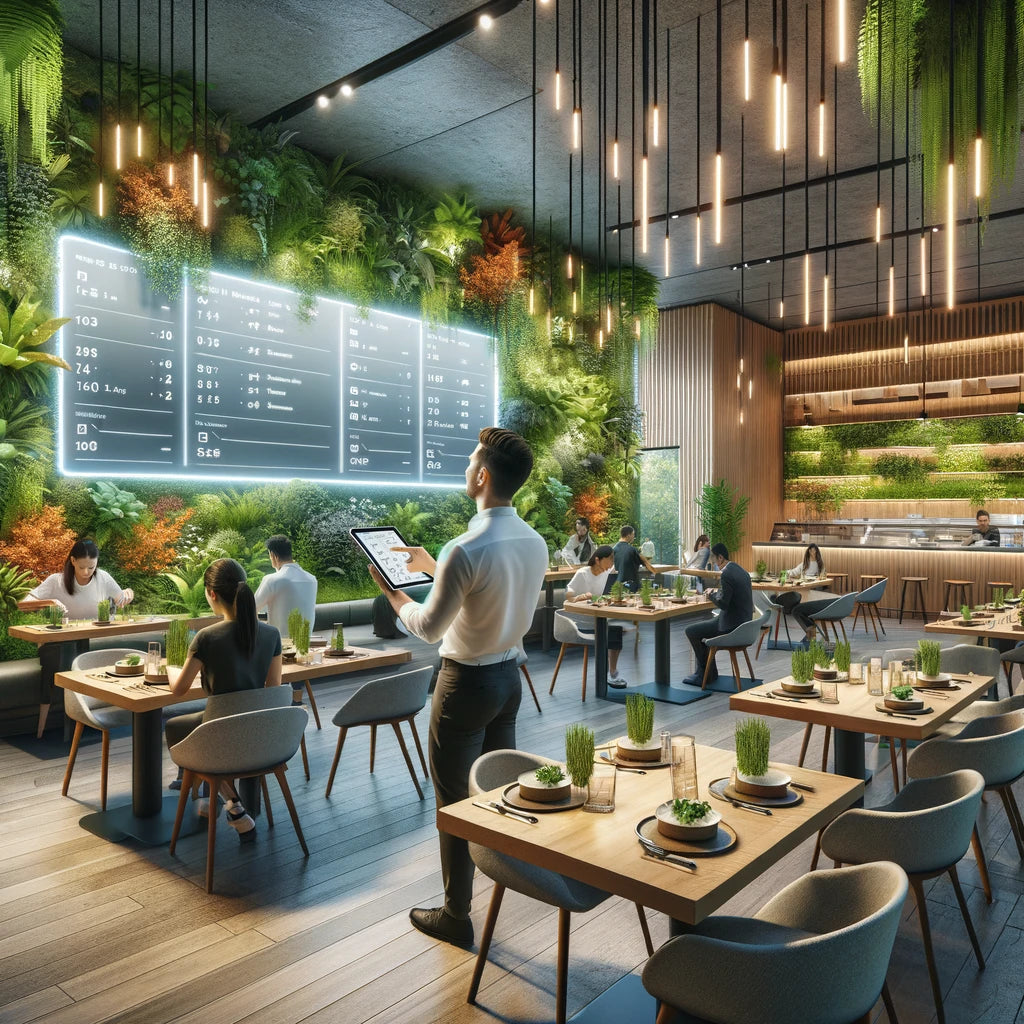
Innovations in catering: when technology meets ecology
Innovations in catering: when technology meets ecology
In the restaurant industry, the pressure to adopt sustainable practices has never been greater. Faced with growing ecological challenges, such as waste management, energy consumption and the use of non-renewable resources, restaurateurs are increasingly called upon to review their practices.
Why is the adoption of green technologies and innovations crucial for restaurateurs?
The answer to this question lies in the need to adapt to customers who are increasingly aware of their environmental impact. Green technologies and innovations offer practical solutions that can help restaurant operators reduce their environmental footprint while improving operational efficiency.
This article will explore how the integration of advanced technologies and the adoption of eco-friendly disposable products can transform the foodservice industry. We will look at real-world examples that demonstrate the effectiveness of these innovations, and discuss their impact on daily restaurant practices.
- What technologies can help with smart waste management?
- How can energy savings be maximized through automation?
- How can eco-friendly disposable products, like sugarcane fiber straws, contribute to greener dining?
Technologies at the service of ecology in catering
Smart waste management
Eco-friendly restaurateurs are adopting on-site composting systems and advanced recycling solutions to reduce their environmental impact. These technologies transform organic waste into resources, thereby reducing the amount of waste sent to landfill.
Cutting-edge restaurants in San Francisco and New York are using biodigesters that turn food scraps into green energy, illustrating the effectiveness of these solutions.
Energy savings and automation
Optimizing energy consumption is crucial in modern catering. Technologies such as smart LED lighting and energy-efficient kitchen equipment play a key role.
Additionally, automated energy management systems help regulate appliance usage based on peak and off-peak times, maximizing energy savings.
Sustainable sourcing and traceability
Using software and apps to track the origin of ingredients has become common practice for restaurateurs concerned about their ecological impact.
These tools provide complete transparency across the supply chain and encourage support for local and ethical producers, helping to reduce the restaurant's carbon footprint.
Innovative and ecological disposable products
Alternatives to traditional plastics
Faced with the need to reduce the use of plastics, sugar cane fiber straws are emerging as a promising ecological solution. Made from agricultural residues, these straws decompose naturally and offer a sustainable alternative to traditional plastics.
Besides straws, other products such as biodegradable cutlery and compostable packaging are also being adopted. These products are made from materials like corn starch and bamboo pulp, significantly reducing the environmental impact associated with their disposal.
Case study - Restaurants using Straws-Berry straws
Several restaurants and catering chains have already successfully integrated sugar cane fiber straws into their daily lives. These establishments demonstrate an improvement in their brand image and better acceptance from customers who are aware of their environmental impact.
Case studies, like that of a popular coffee shop in Los Angeles, show that the introduction of these straws was not only well-received by customers, but also helped boost their eco-friendly marketing.
Impact and benefits of ecological innovations
Environmental benefits
The adoption of ecological technologies and products significantly reduces the ecological footprint of catering establishments. This results in better management of resources and a reduction in waste produced.
For example, the use of smart energy management systems and biodegradable materials contributes to a cleaner and more sustainable environment.
Economic benefits
Investing in green technologies can result in substantial savings. Restaurant owners benefit from reduced energy costs and can also take advantage of government grants and assistance intended to promote sustainable practices.
These savings are particularly evident in reduced expenses for energy and waste management, thereby improving long-term profitability.
Improved brand image
The commitment to ecology attracts an increasingly broad clientele aware of the environmental impact of their choices. Restaurants that adopt eco-friendly practices benefit from an improved brand image.
This eco-responsible approach also helps to build loyalty among existing customers who value sustainability efforts.
Conclusion
Through this article, we explored how technological and ecological innovations can transform the restaurant sector. From smart waste management to the adoption of eco-friendly disposable products, these initiatives are crucial to the future of the industry.
The environmental, economic and branding benefits that these practices bring are undeniable. They not only contribute to a more sustainable world, but also improve operational efficiency and the appeal of establishments to consumers aware of their ecological impact.
We strongly encourage all restaurateurs to consider these solutions. Adopting these technologies and products is not just an environmental act, but a strategic move that can define future success in an industry increasingly focused on sustainability.
For those ready to take the first step toward a greener future, it's time to seriously consider integrating these eco-friendly innovations into your daily practices. Your commitment can inspire others to follow the same path, contributing to a significant positive impact on our environment.
Act now for a sustainable future. Adopt technologies and products that not only respect the environment but also strengthen your business. The future is green, and it starts with informed and responsible choices in the restaurant sector.
